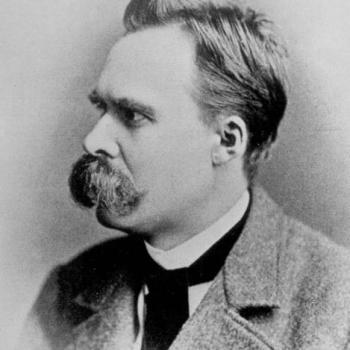More from David Brooks, two interviews in which he talks about what he learned from St. Augustine, “the smartest human being I’ve ever encountered in any form.” Specifically, that would his concept of sin as disordered love and the Christian concept of grace.
St. Augustine is, indeed, a brilliant thinker. You don’t have to agree with him on every point–though he is one of the few theologians claimed both by Catholics and Protestants–but his writings have a magisterial logic, a psychological sensitivity, and a startling depth of spiritual insight. Luther, remember, was an Augustinian monk, and Augustine is noted for his emphasis, like that of the Reformers, on the grace of God. In my view, he is more Platonic and thus ascetic than he should be. Can any of you address the points on which Lutherans–as well as other traditions–agree and disagree with this church father?
From Sarah Pulliam Bailey, Interview: David Brooks on sin, Augustine and the state of his soul – The Washington Post:
Your book has several stories of important Christian authors, including Augustine and Dorothy Day. Were they new to you?
I was familiar with Augustine, but I had never really read in depth or read about him. I now consider Augustine the smartest human being I’ve ever encountered in any form. His observations about human psychology and memory are astounding, especially given the time. What’s even more amazing is he combines it with emotional storms. He’s at once intellectually unparalleled and emotionally so rich a character. I portray him as sort of an Ivy League grad. He portrays himself in “The Confessions” as this sexual libertine, but he wasn’t really that. He was just an ambitious and successful rhetorician and teacher who found that being a successful rhetorician was too shallow for him. He felt famished inside. I think his confession is a very brave renunciation of ambition.
With him what I found so attractive, and this is more a Christian concept, is the concept of grace, the concept of undeserved love. It helps to feel religious to experience grace. Even if you’re secular person, you can always have the feeling that people love you more than you deserve and that you’re accepted.
Frankly, the thing I struggle with in Christian thought in general is the tension between surrender and agency. Raised as a Jew, I believe that we control our lives, we take action. The Jewish tradition is, God created the earth but human beings complete it. It’s about you doing things and exercising agency. In Christian thought, there’s less emphasis on that. It’s more unique redemptive assistance from God. There’s more surrender. The line between agency and surrender, what we can do on our own and what we can’t is something I just don’t understand. I don’t have an answer to that.
From another interview, this time with Jonathan Merritt, David Brooks on character, sin, and rumors about his religious journey, Religious News Service:
Q: How do you define sin?
A: The best definition I like is “disordered love,” which is the Augustinian definition that we all love a lot of things and that some loves are higher than others. But that sometimes we get our loves out of order. If a friend tells you something and you blab it at a dinner party, you’re putting your love of popularity above your love of friendship.
Q: Speaking of Augustine, you chose him as one of your “heroes of renunciation.” Why do you find him compelling?
A: I came to believe he’s pretty much the most brilliant thinker I’ve ever come across — his depth of understanding of psychology and his poetry. He’s emotionally rich — there’s always tears coming down his face — and also intellectually brilliant.
The main thing I take from him is that he was someone who was very successful but found his soul was famished the higher up he got. He revealed the shallowness of worldly success. Second, he helped introduce us to the idea of self, that there’s an internal world in there. It’s not clear that people before him understood that. Third, he understood sinfulness and what it means. And finally, he lived a life that was touched by grace and he wrote about grace beautifully. He’s almost a poet of the religious sensibility.
To read Augustine, start with his Confessions, the world’s first autobiography. Then go to City of God and Of Christian Teaching.















